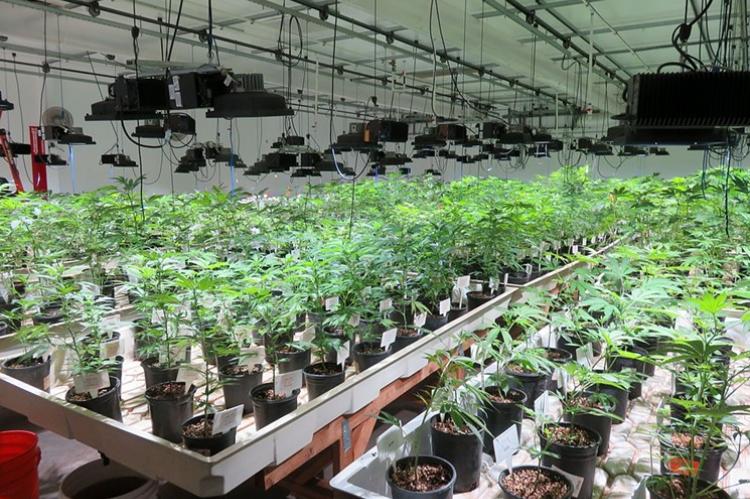Arizona Should Ease Rules on Medical Marijuana Exams and Deliveries, Advocates Say
The state Department of Health Services is putting the safety of medical marijuana doctors and patients in jeopardy, advocates say, by failing to waive certain rules as dispensaries remain open as “essential” businesses.
Some industry members and doctors hope to get exemptions from the state to help them deal with coronavirus-related dilemmas, such as how to keep everyone healthy when the rules require in-person examinations to obtain medical marijuana cards. Their requests to the state Department of Health Services come at a time when the state’s cannabis industry, along with many Arizona businesses, struggles to cope with both the pandemic and an economy in flux.
Medical marijuana services are considered “essential,” per a March 23 executive order issued by Governor Doug Ducey. As previously reported, most dispensaries have adopted social-distancing policies to keep patients a safe distance from each other and sanitation methods such as the use of N95 masks, latex gloves, and liberal amounts of hand sanitizer and disinfectant.
Most dispensaries saw a major increase in demand for cannabis during the third week of March. Some reported reaching record sales over previous years.
But not all is well in the industry, others say.
The March 25 order allows doctors to prescribe medicine remotely, but did not explicitly include consultations, said Dr. Elaine Burns, a naturopathic doctor in Scottsdale who performs medical marijuana services. The DHS also requires doctors to sign evaluations for cannabis, meaning doctors may not be able to provide remote consultation even if the executive order allowed it, she says.
This lack of clarity leaves cannabis doctors in an “at-risk” situation, Burns said, of both exposure to COVID-19 and fraud.
On March 25, Burns sent an email to Colby Bower, DHS assistant director of public health licensing, asking if the state temporarily has lifted its ban on seeing patients strictly through telemedicine. Bower’s response: The ban remains in place, and don’t try to pull any fast ones.
“If ADHS is made aware of false attestations of in-person physician assessment, ADHS could refer the matter to various regulatory boards, where the boards could consider action, with [Ducey’s executive order] as guidance,” Bower wrote.
“This seems very unfair to the physicians to put us in this situation,” Burns said, adding that some patients may have compromised immune systems. She says a possible solution would be if others in her industry asked the state to bend.
Burns followed up on March 31 with a demand letter from her lawyer to DHS Director Cara Christ and Governor Doug Ducey:
"There is no reasonable justification to require only medical marijuana patients to appear for in-person examinations for medical marijuana-related healthcare services," local attorney David Cohen wrote in the letter. "We therefore strenuously request that ADHS provide a temporary, alternate form to reflect that the applicable healthcare services were provided via telemedicine for the duration of the instant public health emergency."
The industry also has taken a closer look at deliveries as a distribution method during quarantine.
Currently, the program’s delivery regulations require dispensary agents to have a separate $500 license for each dispensary at which they work, even within the same company. That means delivery services would require a license for each driver for each dispensary.
Dispensaries can offer their own delivery services; however, many already are struggling to meet the market surge while trying to maintain limited staff to decrease social interaction.
Cannabis promotion firm With a Bhang sent a letter to DHS Director Cara Christ on March 25, petitioning the department to temporarily modify requirements so that dispensary agents can deliver from multiple dispensaries with a single card.
“This delivery program would be good for the patients and good for all of our small businesses, as we are all working diligently to keep everyone employed, but safe,” wrote the company’s CEO, Blake Humphrey.
The DHS has not made any changes yet.
- Log in to post comments

